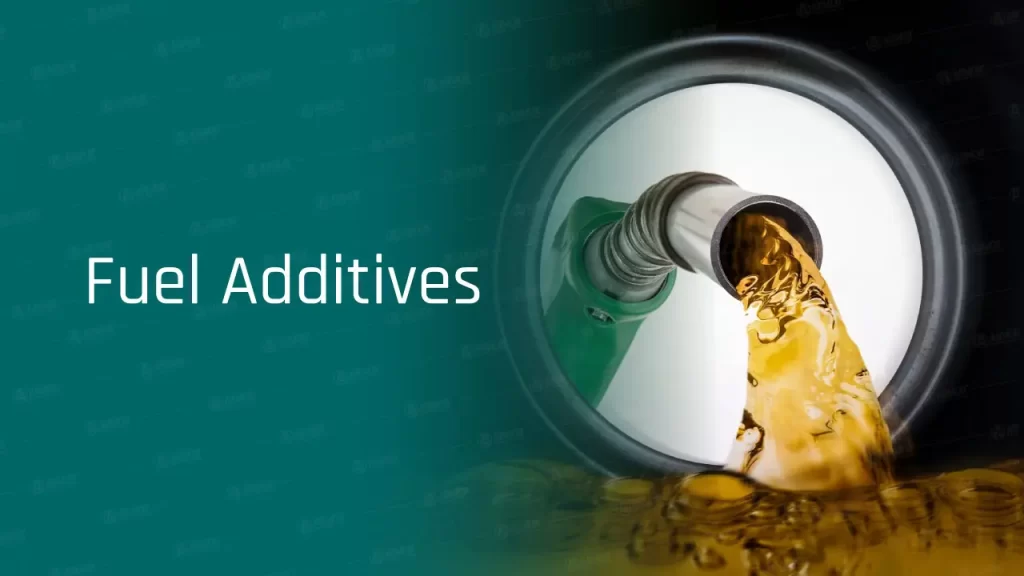
Yes, Fuel additives can clean your engine, improve performance, and enhance fuel economy. Effectiveness varies depending on some reasons but with good quality fuel additive you can see results at the same day!
Fuel additives are chemical compounds added to gasoline or diesel to enhance fuel quality, improve engine performance, and protect fuel system components. They help clean deposits, reduce emissions, and optimize combustion.
Fuel additives are substances mixed with fuel to modify its properties, improve efficiency, and prevent engine-related issues. These additives serve various functions, such as cleaning injectors, boosting octane, and stabilizing stored fuel.
Fuel additives can help modify fuel properties to optimize engine performance. Different types serve different functions, including:
Yes, fuel additives can improve efficiency. They enhance combustion, clean fuel system components, and optimize engine performance. The image shows two fuel injectors, one with poor spray quality and another with an improved spray pattern, highlighting how cleaner injectors lead to better fuel atomization and efficiency.

1. Cleaning Fuel Injectors: Fuel injector cleaners remove Carbon deposits and dirt restoring proper spray and improving fuel combustion.
2. Preventing Fuel System Corrosion: Additives with anti-corrosion properties protect metal components, ensuring optimal fuel delivery.
3. Reducing Engine Deposits: Detergents in fuel additives prevent carbon buildup on valves, pistons, and combustion chambers, leading to cleaner burns and improved efficiency.
Contaminated fuel burns leaving carbon deposits, dirt, and varnish to accumulate inside the engine affecting different parts like fuel injectors, intake valves, and combustion chambers. These buildups reduce fuel efficiency, cause rough idling, and lead to performance issues like knocking or hesitation.
Fuel additives help by cleaning fuel system components, restoring lost efficiency, and enhancing combustion. Detergent additives remove carbon deposits from injectors and intake valves, improving fuel flow and spray patterns.
Octane boosters prevent knocking, ensuring smoother acceleration. Lubricating additives reduce friction in the fuel system, protecting injectors and pumps. Using the right fuel additive can result in better throttle response, improved mileage, and a longer-lasting engine.
Gasoline and diesel engines are built differently! Gasoline engines rely on precise fuel injection and combustion timing, while diesel engines operate under high compression, making them more prone to carbon buildup and injector clogging.
Petrol System Cleaners
Petrol system cleaners help remove carbon deposits from fuel injectors, intake valves, and combustion chambers. These additives improve fuel atomization, ensuring better combustion and smoother engine performance. Regular use helps restore lost power and improve throttle response.
Diesel System Cleaners
Diesel system cleaners target issues like injector deposits, soot buildup, and fuel contamination. They help maintain proper spray patterns for efficient combustion, reducing emissions and improving fuel economy. Diesel additives also assist in preventing fuel thickening in cold temperatures, keeping the engine running smoothly.
Diesel fuel additives improve engine efficiency, protect critical components, and enhance fuel quality. They help prevent injector clogging, reduce emissions, and improve combustion, making them essential for maintaining diesel engines.
Why Are Diesel Fuel Additives Important?
Diesel engines operate under high compression, making them prone to carbon buildup, fuel contamination, and injector deposits. Over time, these issues reduce fuel efficiency, cause rough idling, and lead to increased wear on engine parts. Using diesel additives helps clean the fuel system, prevent fuel thickening in cold weather, and improve overall performance.
When Should You Use Diesel Fuel Additives?
Applying a diesel system cleaner is simple, and does not require professionals or mechanic visit. There are two ways to apply the additive: via the fuel tank or through the fuel filter.
Method 1: Application via Fuel Tank
This method is simple and requires no special equipment.
Method 2: Application via Fuel Filter
This approach is commonly performed in a workshop and involves direct cleaning of the fuel system.
Gasoline fuel additives enhance engine performance, improve fuel efficiency, and protect fuel system components. They help clean injectors, prevent carbon buildup, and optimize combustion, ensuring a smoother and more reliable driving experience.
Over time, gasoline engines accumulate deposits in fuel injectors, intake valves, and combustion chambers. These buildups reduce fuel economy, cause rough idling, and lead to sluggish acceleration. Poor-quality fuel can also contribute to these issues, making additives essential for maintaining engine health.
Applying a fuel additive is simple and requires only a few steps for effective results.
Engines in new cars are clean; gas has barely caused any bad buildup or clogging at this point. Using fuel additives for a new vehicle seems like a waste of money. So here we come to a question, how old should the car be to use fuel additive?
We have two ways to measure, mileage, or time. If you drive excessively, it is a good idea to start buy additives after around 30,000 Kms. If you are not Infrequent driver three years is a good milestone for using fuel injector cleaner or other fuel performance enhancer.
Many additives claim to clean your engine, but most don’t have enough cleaning power to make a real difference. If the formula isn’t strong enough, you won’t see the immediate results you expect.
Armor Performance Improver stands out. This high-powered gasoline fuel injector cleaner is packed with concentrated detergents designed to break down stubborn deposits in injectors, valves, and combustion chambers. It’s not just a surface clean—it’s a deep cleanse that restores lost power, improves throttle response, and even boosts fuel economy by up to 5.7%.
If you want fewer emissions, better mileage, and a smoother-running engine, using a cleaner with the right concentration is key. Armor delivers that powerful clean, helping your engine perform like it should.
You might know few people who tried them and did not work, but does that mean all of them do not? To get the results you desire, you have to look for the Best Fuel Injector Cleaner, and it is not that hard to do so. Factors to determine quality are easy to find.
Brand should be the first factor, it does not mean you have to buy the most expensive brands, but rather look for known reputable brands. Trusted brands formulate their additives with concentrated detergents that aggressively break down deposits.
Famous manufacturers do not take the risk of reducing concentration for the sake of few extra dollars at the end the month as they know well that reputation worth more than that.
What should I do?
Look for known brands, if you are not familiar with the name, check if they are old in the market (google search should usually be enough). Read review online if available, or ask the mechanic about it
Yes, top Fuel additives may help improve fuel economy but only if your expectation are realistic!
If you expect fuel consumption to fall to half the value, then no you will not get the results you desire. Fuel additives remove dirt and sludge from the engine to enhance fuel economy. Original fuel consumption is the best you can get with additives. Often, you will notice improvements around 5% after few days.
